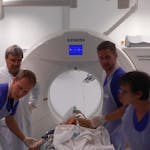Description
In this course, you will learn:
- Definition of behavior change, actors, and energy-saving acts.
- Energy management is described in terms of preconceptions, hurdles, and criticisms.
- Recognize the human aspects (e.g., motivation, perception, learning, and attitude or belief system) that must be addressed in order to modify consumer behaviour.
- Explanation of behavioral economics and cognitive bias.
- Examining the EU Directives on Energy Efficiency, Building Performance, Renewable Energy, and Electricity.
- Description of public policy and behavioral transformation.
- Explanation of the principles and methodology of behavioral sciences for developing initiatives and programs to promote energy efficiency and conservation.
- Illustration of reliable methods for measuring changes in energy consumption.
- Introduction to planning a behavioral change program.
- Encourages the adoption and proper application of RE&EE technology.
Syllabus:
- Introduction to behaviour change for energy efficiency
- Path (main components) of the new Energy Transition
- Behavioral change, actors/actions to save energy and related prejudices, barriers and criticisms
- Introduction to the design of a behavioral modification program









